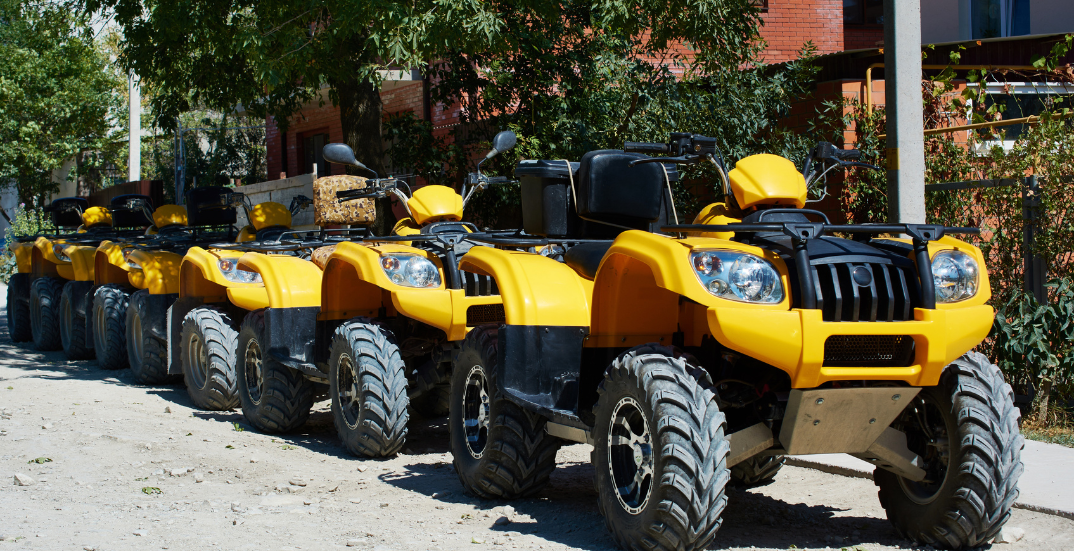
All-terrain vehicles (ATVs) are a popular choice for adventure and utility in West Virginia, but with great fun comes great responsibility. Whether you’re an experienced rider or new to the world of ATVs, understanding and following West Virginia’s ATV laws is essential. These laws are designed to keep you safe and help you avoid legal trouble. Let’s dive into the key rules and safety tips to ensure your next ride is both fun and lawful.
ATVs may seem like the perfect off-road companions, but they’re still considered motor vehicles under West Virginia law, meaning they come with a set of rules that all riders must follow.
In West Virginia, ATV operators must adhere to specific rules about passenger capacity and engine size. The law prohibits carrying passengers unless the ATV is designed to do so. Most ATVs are built for single riders, so adding an extra person can be unsafe and is usually illegal.
For younger riders, the law specifies that children under 16 years old should not operate an ATV with an engine size greater than 90 cubic centimeters. This helps ensure that young riders are handling vehicles suited to their size and experience level.
All riders under 18 must wear helmets, and this rule is strictly enforced for safety reasons. Helmets have been proven to significantly reduce the risk of head injuries, which are common in ATV accidents.
West Virginia requires all ATV operators under 18 to complete a safety awareness course offered by the West Virginia DMV or an approved provider. Completing this course not only makes you a safer rider but also equips you with a safety card and helmet sticker that signify your readiness to ride responsibly. However, this requirement does not apply when riding on private property or specific trail systems with their own safety programs, such as the popular Hatfield-McCoy Trail System.
One of the most common questions ATV enthusiasts have is whether they can ride their ATVs on public roads. In general, the answer is no. ATVs are not allowed on interstate highways, and riding on most public roads is illegal unless the vehicle is registered as a Special Purpose Vehicle (SPV). However, there are some exceptions:
When riding at night or in low-light conditions, ATVs must be equipped with operational headlights and taillights. Additionally, ATVs must have a manufacturer-installed spark arrester and muffler to reduce the risk of fires and excessive noise.

Understanding the risks associated with ATV riding can help you stay safe. The West Virginia University Center for Rural Emergency Medicine provides important statistics that highlight the need for caution:
Generally, driving an ATV on public roads in West Virginia is prohibited, but there are some nuances:
Out-of-state residents can apply for a temporary 14-day SPV registration online, which allows limited road use within the state. It’s a great option for visitors looking to explore West Virginia’s trails legally.
Failure to abide by ATV laws in West Virginia can result in fines and other penalties:
These penalties underscore the importance of following ATV laws, not only to avoid fines but also to minimize your liability in the event of an accident. West Virginia follows a comparative negligence rule, meaning if you’re partially at fault for an accident (e.g., not wearing a helmet), your compensation could be reduced.

The best way to enjoy your ATV safely is to stay informed about the latest laws and regulations. Regularly check for updates from the West Virginia DMV and local authorities, especially if you frequently ride on public lands or near roadways.
West Virginia’s ATV laws are designed with your safety in mind. By following these regulations, you can enjoy your ATV adventures without legal hassles and significantly reduce your risk of injury. Even with the best safety practices, accidents can happen, and knowing the laws can help you limit your liability if you’re involved in a crash.
If you or a loved one is injured in an ATV accident, the legal team at Manchin Injury Law Firm is here to help. We have a proven track record in handling ATV accident cases and are dedicated to fighting for the rights of accident victims. For a free consultation, don’t hesitate to reach out and explore your legal options.

Member at Manchin Injury Law Group
Practice Areas: Medical Negligence, Personal Injury, Automobile Accidents

Attorney Timothy Manchin established the Manchin Injury Law Group in 2011 after his law partner of more than 25 years became a West Virginia circuit court judge. His focus is on helping individual clients and entire families victimized by negligent acts.
We offer a free initial consultation at our office in the Manchin Professional Building — our home since 1983 — conveniently located in Fairmont.
If you are unable to visit our firm, we can come to your home or hospital room.
Fill out the form below to get in touch!